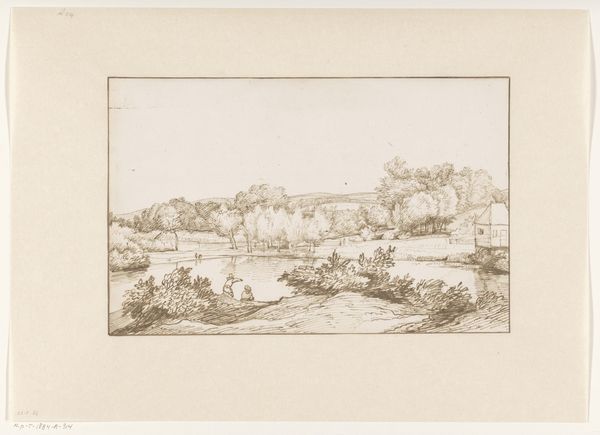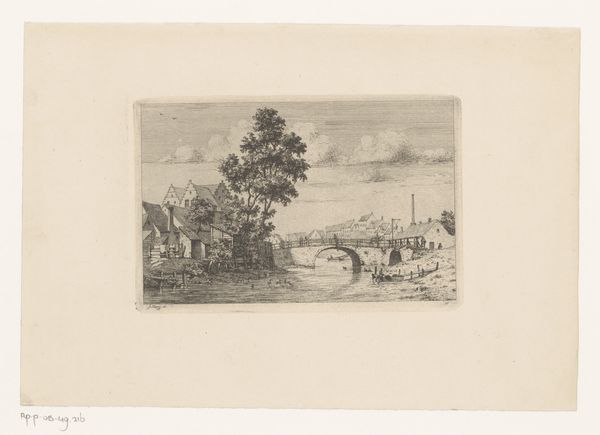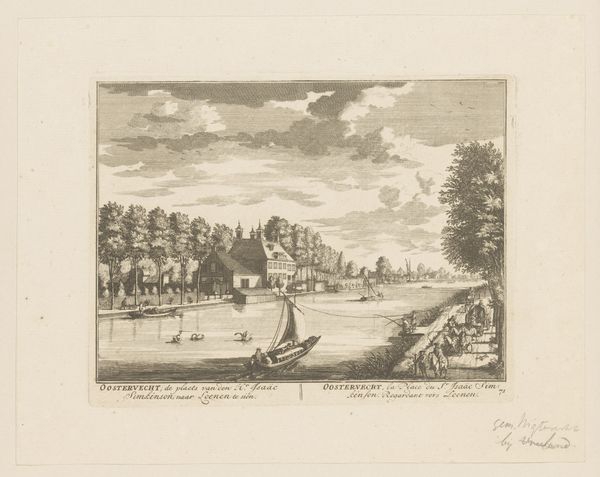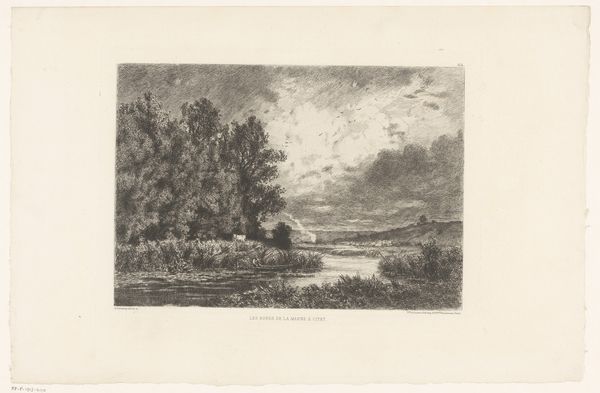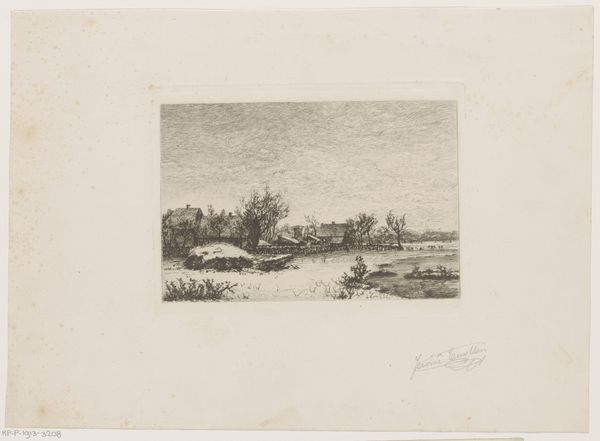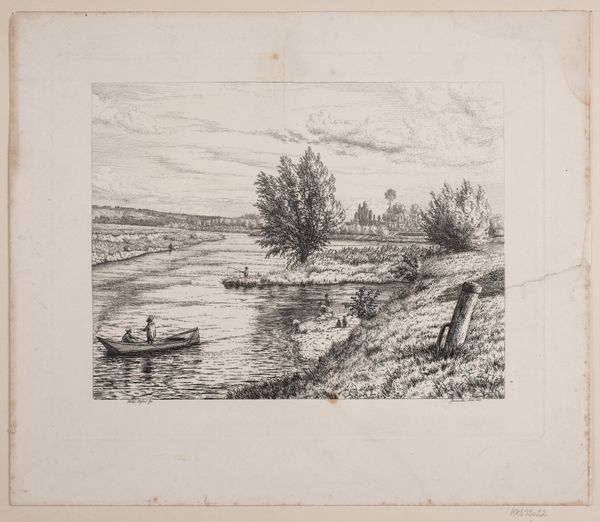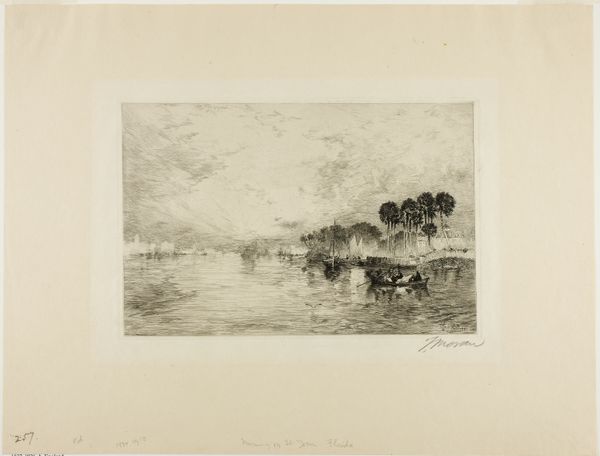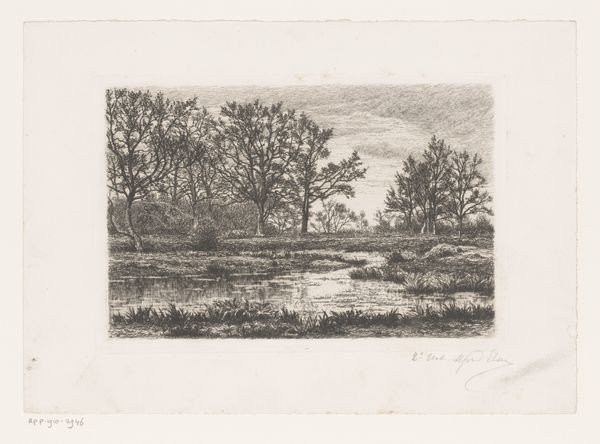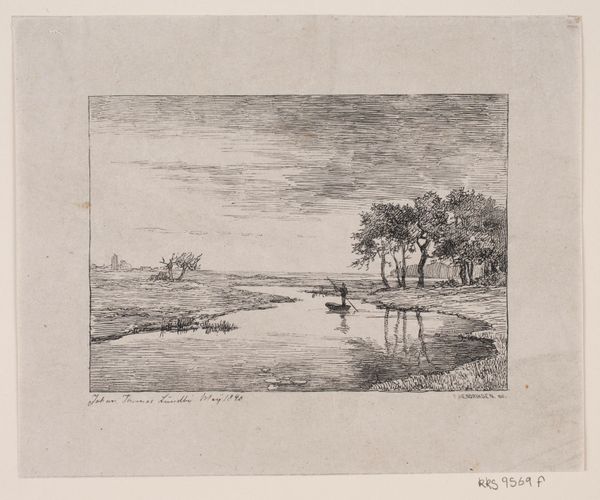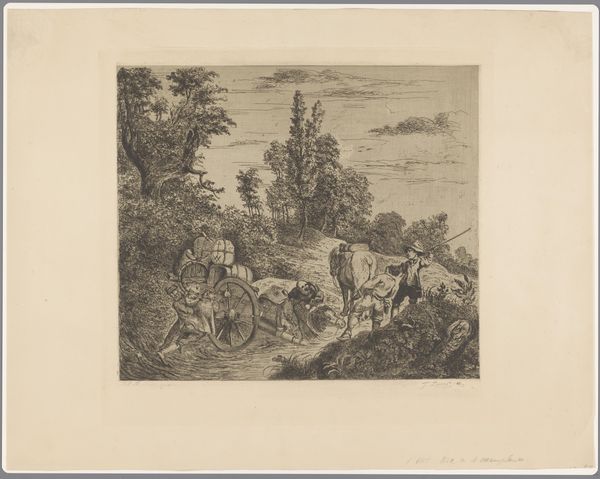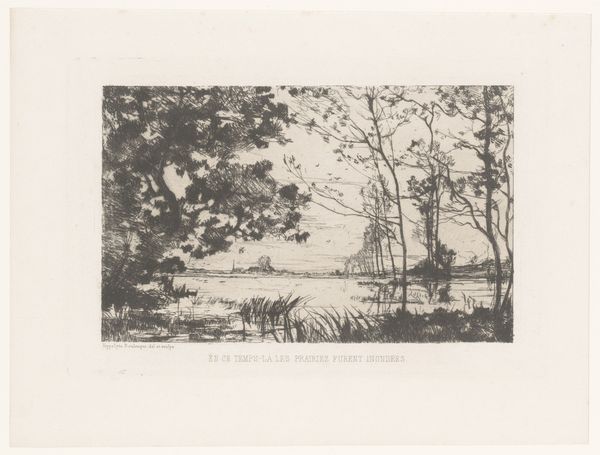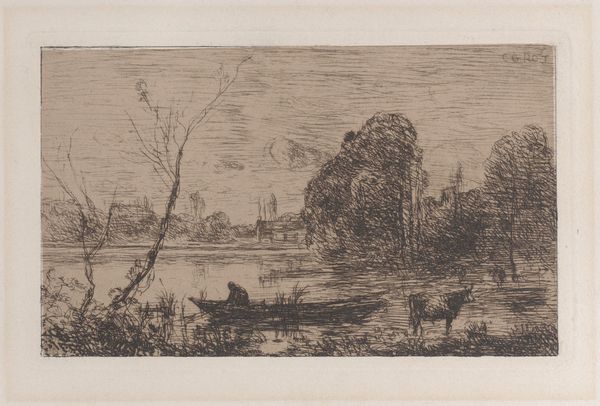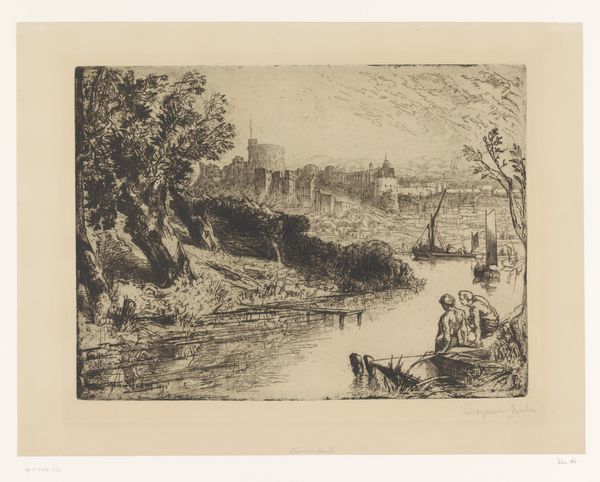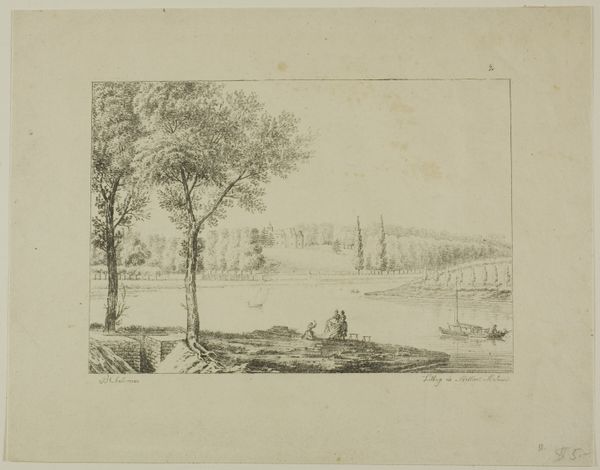
print, etching
#
ink paper printed
# print
#
etching
#
landscape
#
realism
Dimensions: height 205 mm, width 285 mm
Copyright: Rijks Museum: Open Domain
Adolphe Guillon created this print, "Wasvrouwen aan de Cure," using etching techniques. Guillon’s artwork offers a glimpse into 19th-century France, a period marked by significant social stratification. Here we see women, likely from the working class, engaged in the laborious task of washing clothes by the river. Their gathering could be seen as a form of resistance, creating a space for community and mutual support in a society that often marginalized them. The act of depicting these women elevates their status, countering the prevailing social norms that often render such labor invisible. Guillon's choice to portray this scene may reflect a sympathetic view towards the working class, challenging the traditional art world's focus on more affluent subjects. The stark realism of the scene evokes a sense of empathy, inviting us to reflect on the lives and struggles of these women. The image stands as a reminder of the power dynamics inherent in everyday life, and the role of art in making visible those who are often overlooked.
Comments
No comments
Be the first to comment and join the conversation on the ultimate creative platform.
